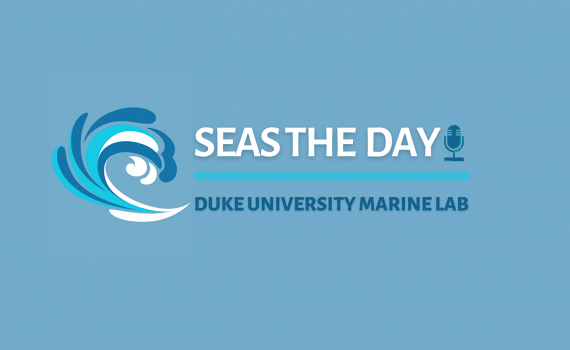What role do sea turtle hatcheries play in conservation? In this episode, Sarah Sevilla and Jessica Stevens dive into the background and various uses of hatcheries, compare the pros and cons, discuss their use in the US versus other nations, and explore improvements in and new technologies for sea turtle management. This episode features Airton Jesus, a field manager at the Turtle Foundation in Cape Verde, and Kartik Shanker, an ecologist with an interest in sea turtles, based in India.
lcampbe@duke.edu
Restoration is a relatively new tool used for the conservation of marine and terrestrial ecosystems. As such, a certain level of uncertainty surrounds what restoration actually is. Our podcast seeks to understand how restoration is defined, specifically as it pertains to Target 2 of the Kunming-Montreal Global Biodiversity Framework adopted by the Convention on Biological Diversity (CBD) in 2022. We are particular interested in artificial reefs and what role they might play in meeting Target 2, which aims to Ensure that by 2030 at least 30 per cent of areas of degraded terrestrial, inland water, and coastal and marine ecosystems are under effective restoration, in order to enhance biodiversity and ecosystem functions and services, ecological integrity and connectivity.
In this episode, Duke Marine Lab students Claire Helgerson, Kendra Rentz, and Anna de Hostos explore the processes by which researchers tag sea turtles to track migratory patterns and learn more about their somewhat mysterious life histories. Through interviews with various researchers, they discuss the methods of managing, processing and sharing tagging data in several sea turtle databases.
In December 2022, world leaders at the Convention on Biological Diversity adopted a proposal to conserve 30% of the Earth by 2030. This proposal was highly controversial and has met with varied reactions from Indigenous Peoples. In this episode, hosts Claudia Deeg and Devin Domeyer discuss the history of conservation’s violence towards Indigenous Peoples, Indigenous Peoples' perspectives on the 30 by 30 proposal, and what happened during the negotiations. This episode features an interview with Jennifer (Jing) Corpuz, lead negotiator on conservation targets for the International Indigenous Forum on Biodiversity.
In this episode, the students in the Biology and Conservation of Sea Turtles class from the Duke Marine Lab explore the past, current and future status of sea turtle conservation on St. Croix, in the US Virgin Islands. Based on interviews conducted during a 10-day immersive experience on St. Croix, the episode reviews the successes, challenges, and unknowns of conserving and managing sea turtle populations on the island.
In this third installment of a three episode series, Spencer Moyle reads his story of Terry the Tree and Rory McCollum follows with The Live Oak and the Wind. Both stories were written as part of a Duke Engage program exploring concepts of social and ecological resilience. The program was run by Dr. Liz DeMattia, director of the Community Science Initiative, with the assistance of PhD student Laura Givens, who was the site coordinator for Duke Engage, in 2022. Following the 'reading', Laura interviews the authors on their experiences in the program and how they crafted their stories.
Listen on Apple Podcasts In this second of a three episode series, Andres Hernandez reads his story of Gilbert the Grouper. The story explores concepts of resilience and was written as part of a Duke Engage summer program at Duke University Marine Lab. The program was run by Dr. Liz DeMattia, director of the Community Science Initiative, with the assistance of PhD student Laura Givens, who was the site coordinator for Duke Engage, in 2022. Following the 'reading', Laura interviews Andres on his experiences in the program and the logic of the story.
In this first of a three episode series, Amy Buckalew, reads her story of Ollie the Orca. The story draws explores concepts of resilience and was written as part of a Duke Engage summer program at Duke University Marine Lab. The program was run by Dr. Liz DeMattia, director of the Community Science Initiative, with the assistance of PhD student Laura Givens, who was the site coordinator for Duke Engage, in 2022. Following the 'reading', Laura interviews Amy on her experiences in the program and the logic of the story.
On this episode, the host, Rafaella Lobo, talks to four other students to understand how the Covid-19 global pandemic has affected their lives and research, and how they have learned to cope with these new challenges.
In this episode, Cat and Jingyi discuss artificial islands and their role in ocean development. They examine some of the island nations in the Pacific Ocean, such as Kiribati, that are ‘sinking’ due to sea-level-rise and explore how artificial islands might offer such places a solution to this imminent crisis.

